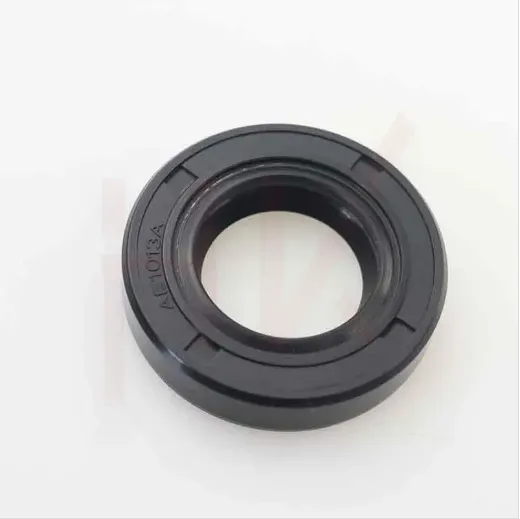Nën . 16, 2024 00:21 Back to list
hydraulic oil seal material
Understanding Hydraulic Oil Seal Materials Key Factors for Performance and Longevity
Hydraulic systems are integral to numerous industrial and automotive applications, where fluids need to be effectively contained to maintain pressure and performance. At the heart of these systems are hydraulic oil seals, which play a critical role in preventing leakage of hydraulic fluids while ensuring efficient operation. The materials used to manufacture these seals are crucial to their performance and longevity. This article will explore the various materials used in hydraulic oil seals, their properties, and the factors that influence their selection.
1. Common Materials Used in Hydraulic Oil Seals
Hydraulic oil seals are typically made from various elastomers, thermoplastics, and composite materials. The most common materials include
- Nitrile Rubber (NBR) This is one of the most widely used materials for hydraulic seals due to its excellent resistance to oil and other petroleum-based fluids. NBR has a temperature range of -40°C to +100°C, making it suitable for high-pressure applications. Its resistance to abrasives and its good mechanical properties contribute to its popularity.
- Fluoroelastomer (FKM) Known for its exceptional heat and chemical resistance, FKM is ideal for high-temperature environments. Although it is more expensive than NBR, its durability and resistance to aggressive chemicals make it a preferred choice in applications involving harsh fluids and elevated temperatures.
- Polyurethane (PU) This material offers good abrasion resistance and is often used in seal applications requiring high elasticity and toughness. Polyurethane seals are particularly beneficial in systems where high pressures and dynamic movements are present.
- Silicone Rubber While silicone is resistant to extreme temperatures (-55°C to +200°C) and maintains flexibility in cold conditions, it is generally not as strong against petroleum-based fluids compared to NBR and FKM. However, it can be used in applications requiring resistance to ozone and aging.
2. Key Properties That Affect Material Selection
hydraulic oil seal material

When selecting a material for hydraulic oil seals, several key properties must be considered
- Chemical Resistance The seal material must be compatible with the hydraulic fluid being used. It should withstand potential exposure to various chemicals without degrading, swelling, or losing its sealing capability.
- Temperature Resistance The operational temperature range of the hydraulic system plays a crucial role in material selection. High temperatures can cause materials to harden, while low temperatures can lead to brittleness.
- Wear Resistance Seals are subjected to wear over time, especially in dynamic applications. Materials with high abrasion resistance will tend to last longer, maintaining the integrity of the hydraulic system.
- Compression Set This property refers to the material's ability to return to its original shape after being compressed. A low compression set is preferred, as it indicates the seal will maintain its effectiveness over extended periods.
3. Conclusion The Importance of Choosing the Right Seal Material
In conclusion, the choice of hydraulic oil seal material is paramount to the efficiency and reliability of hydraulic systems. By understanding the properties of various materials such as NBR, FKM, PU, and silicone rubber, engineers can make informed decisions that align with the specific demands of the application. Factors such as chemical compatibility, operational temperatures, wear resistance, and overall durability play a significant role in ensuring that the hydraulic seals perform optimally and have a long service life.
As technology advances and the demands on hydraulic systems continue to evolve, the development and selection of specialized materials for oil seals will remain a critical area of research and innovation. A well-chosen hydraulic oil seal material not only enhances the performance of the system but also contributes to reduced maintenance costs and increased operational efficiency, making it an essential consideration for engineers and maintenance professionals alike.
-
TCN Oil Seal Metal Ring Reinforcement for Heavy Machinery
NewsJul.25,2025
-
Rotary Lip Seal Spring-Loaded Design for High-Speed Applications
NewsJul.25,2025
-
Hydraulic Cylinder Seals Polyurethane Material for High-Impact Jobs
NewsJul.25,2025
-
High Pressure Oil Seal Polyurethane Coating Wear Resistance
NewsJul.25,2025
-
Dust Proof Seal Double Lip Design for Construction Equipment
NewsJul.25,2025
-
Hub Seal Polyurethane Wear Resistance in Agricultural Vehicles
NewsJul.25,2025
-
The Trans-formative Journey of Wheel Hub Oil Seals
NewsJun.06,2025
Products categories
















